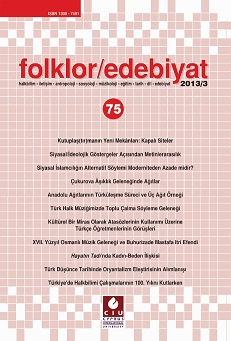Kutuplaş(tir)manin Yeni Mekânlari: Kapali Siteler
New Locations for (Creating) Polarization: Gated Communities
Author(s): Sevgi Kesim Güven, Altan KarSubject(s): Social development, Social differentiation, Rural and urban sociology, Globalization
Published by: Uluslararası Kıbrıs Üniversitesi
Keywords: Location; Urbanization; Urban Location; Gated Housing Estate; Social Polarization;
Summary/Abstract: Almost in every metropolitan area of developed and developing countries, increasing numbers of gated communities (secured housing estate) form one of the most important socio-spatial cases for today’s urbanization. It has been a process parallel to the free market economy that started to dominate since 1980s in Turkey. Istanbul is one of the first cities in Turkey where these kinds of housing estates appeared. While gated communities changed the urban texture of the big cities (particularly Istanbul) they also raised the speed of social stratification. On the other hand, fast-spreading gated community designs made spatial separation patterns visible. In the beginning, gated housing estates in Istanbul were fed with the discourse of fear like their predecessors in the world. In addition to this, the socio-cultural separation (Islamic and secular elites) the country has gone through since the 2000s has been reflected to the preference of closed housing estates. Thus, these voluntarily prosperity islets, first in Istanbul and then in other big cities, are going to be the places of reflections of ideological separation and becoming introverted. In this sense, new urban places mentioned (housing estates) may be turning into polarization grounds of ideological preferences. In the article, the topic that is grounded upon the theoretical structure which is briefly summarized above, is examined via two examples of housing estates in which mentioned tendencies in Istanbul can be determined; Ataşehir (KentPlus) and Başakşehir. Both KentPlus and Başakşehir are preferred for the fact that they are away from the chaos of the big city (Istanbul), children can grow up safely and for their promise of a new life with their urban equipment. Residents of KentPlus identified themselves as modern, laic and democrat (predominantly on the side of Republican People’s Party), while residents of Başakşehir identified themselves as traditional, religious, conservative and nationalist (predominantly on the side of Justice and Development Party). In this regard, it is determined that socio-cultural and political references are reflected in the preferences of both housing estates; however, in spite of this separation and introverted situation, residents of the housing estates have considerably limited social relations.
Journal: Folklor/Edebiyat
- Issue Year: 19/2013
- Issue No: 75
- Page Range: 9-36
- Page Count: 28
- Language: Turkish

